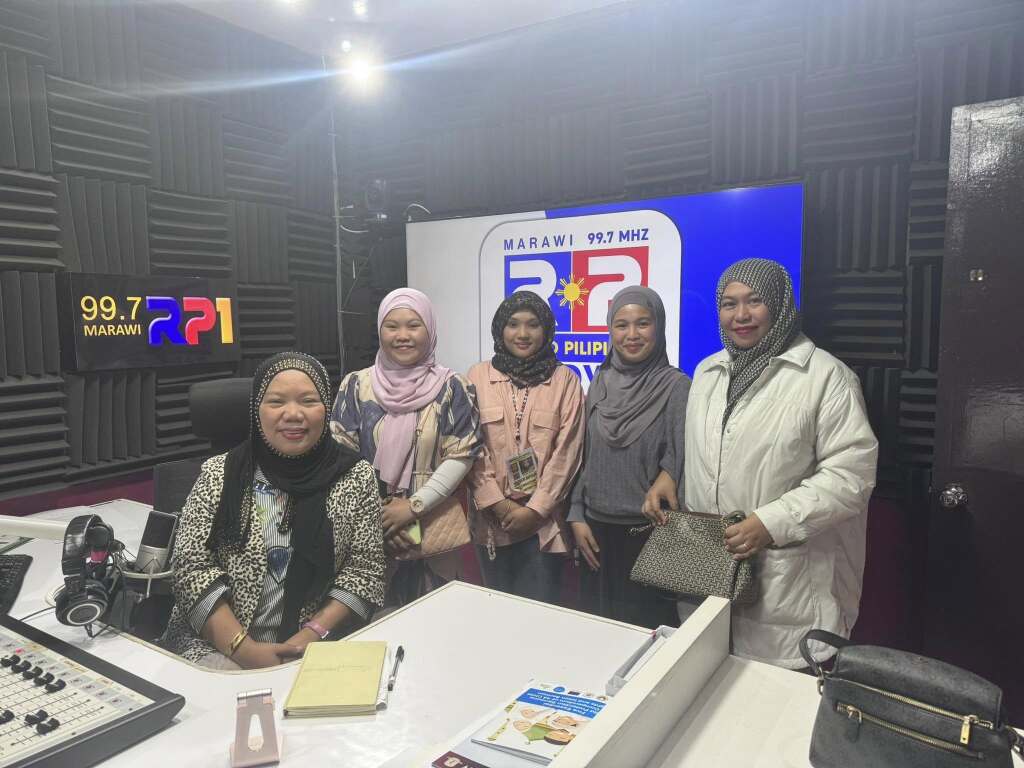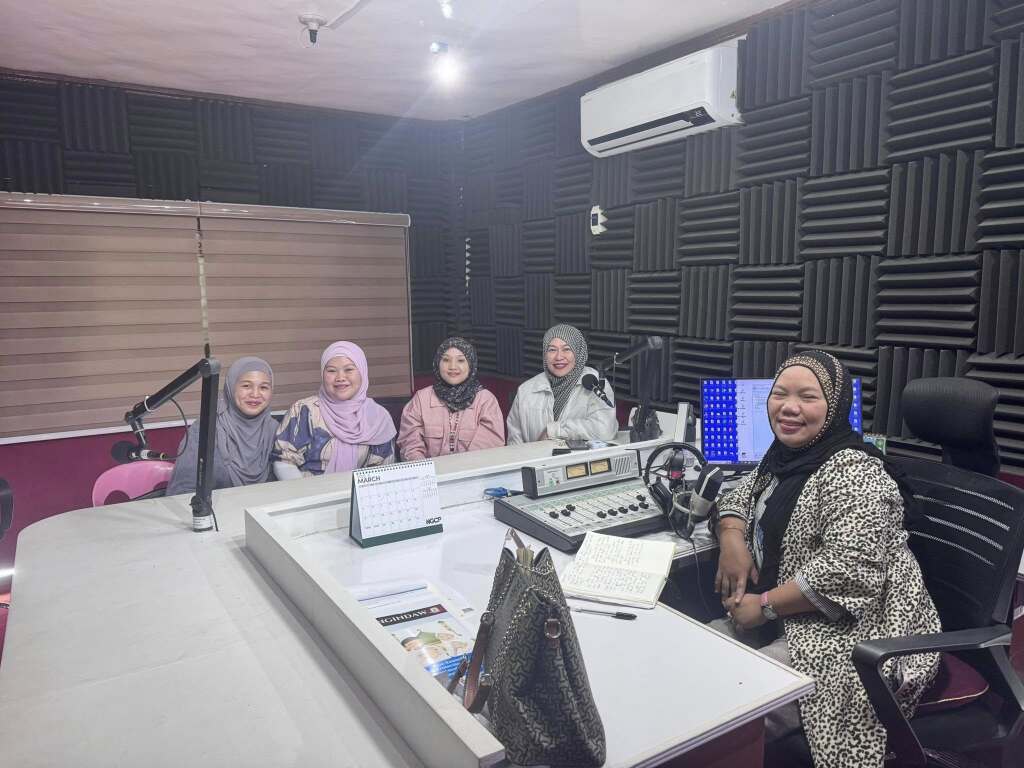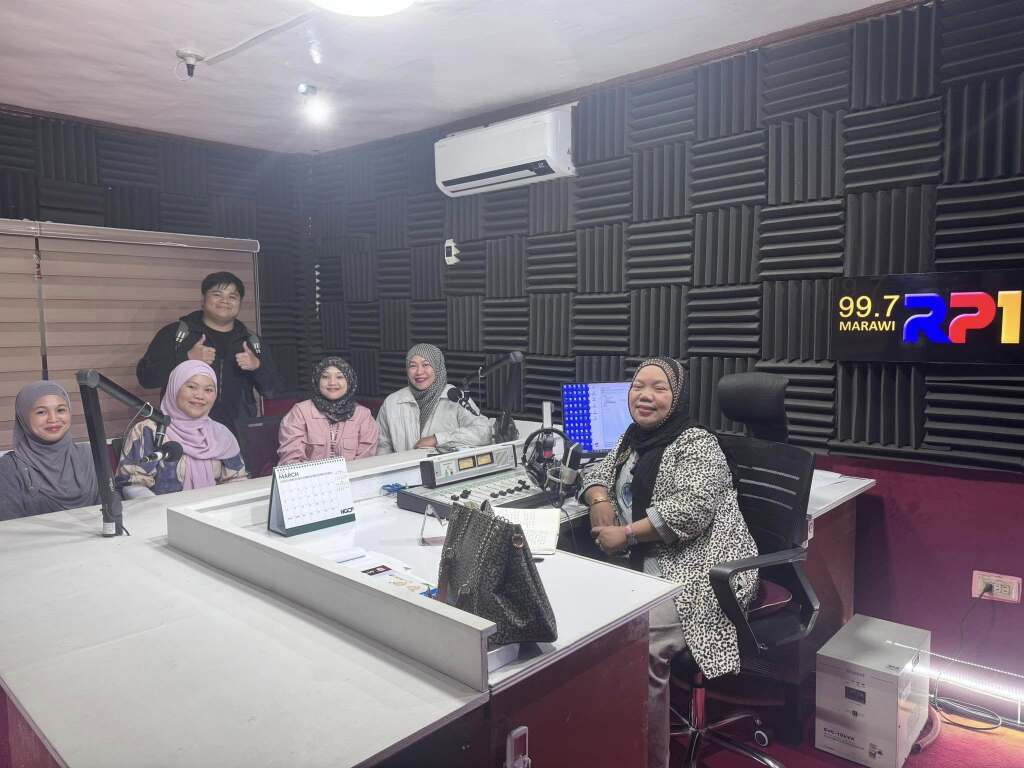Aliah P. Cali-Pascan, DPA, JD
Marawi City, Bangsamoro Autonomous Region in Muslim Mindanao – In a recent episode of “ShuaraMSU,” last March 21, 2025, a radio program hosted by Dr. Aliah Cali-Pascan in partnership with Radyo Pilipinas Marawi, Sabdullah Alonto III. introduced Manal Ditucalan Hadjinoor, head of the Asosasyon ng Mag-aaral ng Kasaysayan (AMKa), and Instructor Naifah Batugan, the organization’s adviser from the History Department of Mindanao State University. The discussion centered on the significance of Bangsamoro History Month and Women’s Month, highlighting the crucial role of historical understanding in shaping the region’s future.
AMKa, formerly known as the Historical Society Organization, underwent a name change post-pandemic to better reflect the department’s mission. As Instructor Batugan emphasized, “Knowing your history gives relevance to our directions in life.” This sentiment resonated throughout the interview, underscoring the importance of historical awareness.
Bangsamoro History Month: Reclaiming Narratives
When asked about the most important aspects of Bangsamoro history to highlight, Ms. Ditucalan stressed the need to reclaim and amplify authentic narratives. “We must highlight the resilience, rich cultural heritage, and the long struggle for self-determination,” she stated. The guests emphasized the importance of addressing common misconceptions, particularly those stemming from historical biases and misrepresentations.
To make Bangsamoro history more accessible to younger generations, AMKa suggested leveraging interactive platforms and digital resources, incorporating storytelling, and engaging with local communities. They also highlighted the significance of celebrating Bangsamoro History Month within the context of national history, asserting its integral role in understanding the nation’s diverse tapestry.
The discussion further delved into the role of Bangsamoro history in peacebuilding and reconciliation. The guests emphasized that by understanding historical grievances and fostering dialogue, communities can work towards a more harmonious future. The presence of the BARMM, as Instructor Batugan noted, is a testament to the success of the peace process.
AMKa proposed various events and activities for a meaningful celebration, including public lectures, cultural exhibitions, and community dialogues.
Dr. Khayronesah Abbas, a co-host also provided updates on the activities of the Institute for Peace and Development in Mindanao (IPDM), which often aligns with the AMKa’s endeavors. The declaration of the Day of Shuhada, its importance and background, were also discussed, highlighting the region’s historical struggles and sacrifices.
Women’s Month: Amplifying Voices, Empowering Futures
The conversation shifted to Women’s Month, where Ms. Ditucalan and Instructor Batugan highlighted the significant contributions of Bangsamoro women throughout history. They stressed the importance of ensuring women’s voices are heard in historical and contemporary discussions, acknowledging their vital role in preserving and promoting cultural heritage.
Addressing the challenges faced by Bangsamoro women today, the guests emphasized the need to promote gender equality and women’s empowerment within the region. They cited the “Kwenta at Kwento” program as an example of discussing the role of women in nation-building, particularly in the election process.
They also called for greater recognition of historical Bangsamoro women who have been overlooked, advocating for their stories to be brought to light.
Bridging Academia and Community
Regarding general questions, the guests emphasized the vital role of history students in contributing to a deeper understanding of both Bangsamoro history and women’s contributions. They recommended various resources and materials, including academic journals, historical archives, and community-based oral histories.
Finally, they stressed the importance of fostering collaboration between academic institutions and communities to promote historical awareness. Instructor Batugan reiterated the need to respect diverse narratives, provided they are grounded in credible sources.
This insightful discussion with AMKa shed light on the importance of reclaiming historical narratives, empowering women, and fostering a deeper understanding of Bangsamoro history. By bridging academia and community, organizations like AMKa are playing a crucial role in shaping a more informed and inclusive future for the region.




